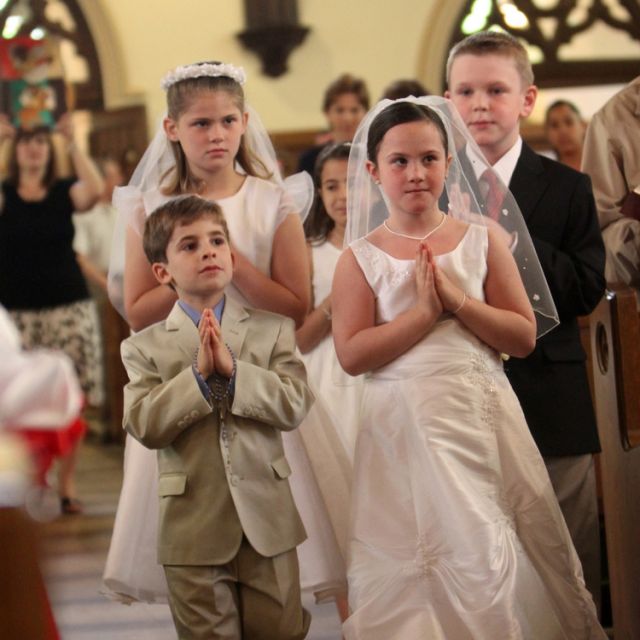What is happening in our geographically large, mostly rural diocese is not unique. There are many more empty pews than there were 30 years ago when I made my First Communion. Back then, we took our religious instruction during the day as part of our school curriculum. I remember my second grade teacher, Mrs. Chisholm, some time in between math and reading, going through a First Communion dry run and teaching us not to “chomp” on the host, but to be more discreet when consuming our Lord.
Ours is not the only parish with a small group of first communicants; several parishes had none. There were markedly fewer catechumens in our diocese this Easter as well. Upon learning there would only be two first communicants at my parish, I wondered what was the point of having these countryside churches if they contain little to no signs of life? But as we conclude another Easter season I am reminded that Catholics everywhere are a people of the Resurrection, a people of hope.
I recently experienced a sharp reminder of such hope from an unlikely source. During a conversation with a local health professional (a non-Catholic not originally from our community), he said he perceives our area to be quite Catholic in attitude and culture. At first I was incredulous and began to disagree. He argued that even if people are not going to church regularly, or at all, he believes that the faith of their forefathers is still influencing their decisions, even if subconsciously.
The more I thought about it, the more he made sense. Not only did he make sense, but his words became a source of hopeful inspiration. Even if parents no longer make an effort to bring children to church, that doesn’t mean they have abandoned their faith altogether. On the contrary, they may feel the Church community has abandoned them, for any number of reasons. So it falls on us to bring them back through evangelization.
If the majority in my community are baptized Catholics, or any Christian church for that matter, we are brothers and sisters in Christ whether or not we see each other at church. So what are we waiting for? Many times the best way to get people to return to church is simply to invite them back. A personal invitation often leads to conversation, curiosity, questions, answers and that first step back.
Along with extending a personal invitation to come to Mass, we can invite people to our prayer group or Bible study or some other living, breathing, active community of faith. Evangelization can start with the laity. It is up to those who fill the pews on a regular basis to make Mass and other parish activities all that they can be.
Last October, in his statement “Porta Fidei” announcing the Year of Faith that will commence this fall, Pope Benedict emphasized the need for evangelization.
“It is the love of Christ that fills our hearts and impels us to evangelize. Today, as in the past, He sends us through the highways of the world, to proclaim His Gospel to all the peoples of the Earth,” he wrote. He goes on to identify the “missionary commitment” that identifies every Christian, every one of us, and allows us to pass on “life-giving witness” to all we meet.
Our Atlantic community has deep roots in the Catholic faith and has been through a trying time that has seen scandal, betrayal and legal issues take precedence over matters of faith.
For too long we have taken our doom-and-gloom cues from the secular media that has no regard, let alone love, for a spiritual institution founded by Christ some 2,000 years ago. As baptized members, the Church is our heritage. Despite recent tribulations, that legacy endures and it remains ours to pass on.
We are an Easter people and should act accordingly. Maybe next year we can double the number of first communicants — in my parish and yours.
(Lazzuri is a mother of five and writes from her domestic church in rural Nova Scotia.)
Evangelization starts at home
By Clare LazzuriMy seven-year-old recently made his First Communion. He is one of two children to take this life-changing spiritual step in our rural Nova Scotia parish. That’s right, one of only two.
I’m sure there are other children in our countryside community who should have joined them, but for many reasons those children did not prepare for the sacrament. Most don’t even attend Mass, even though their parents did so as children.
Please support The Catholic Register
Unlike many media companies, The Catholic Register has never charged readers for access to the news and information on our website. We want to keep our award-winning journalism as widely available as possible. But we need your help.
For more than 125 years, The Register has been a trusted source of faith-based journalism. By making even a small donation you help ensure our future as an important voice in the Catholic Church. If you support the mission of Catholic journalism, please donate today. Thank you.
DONATE

